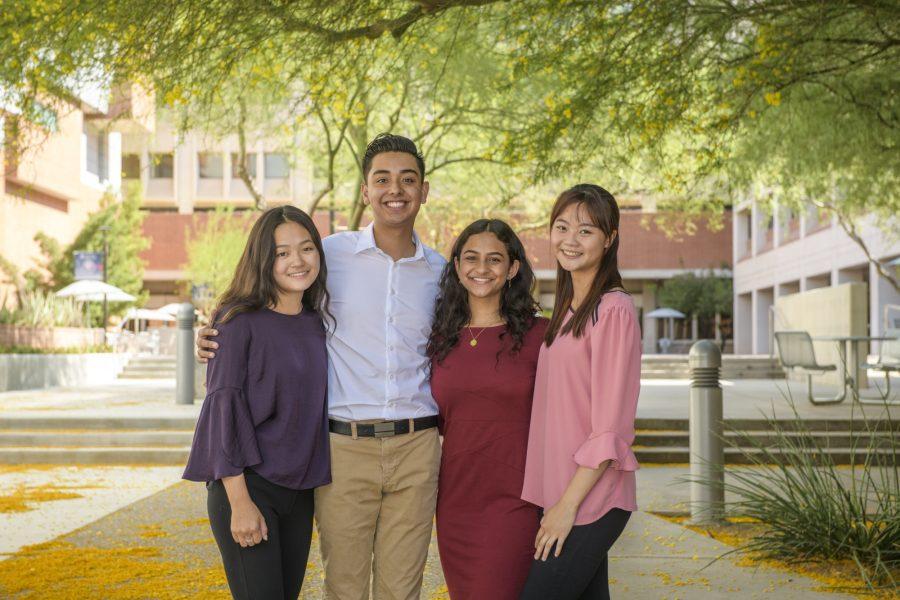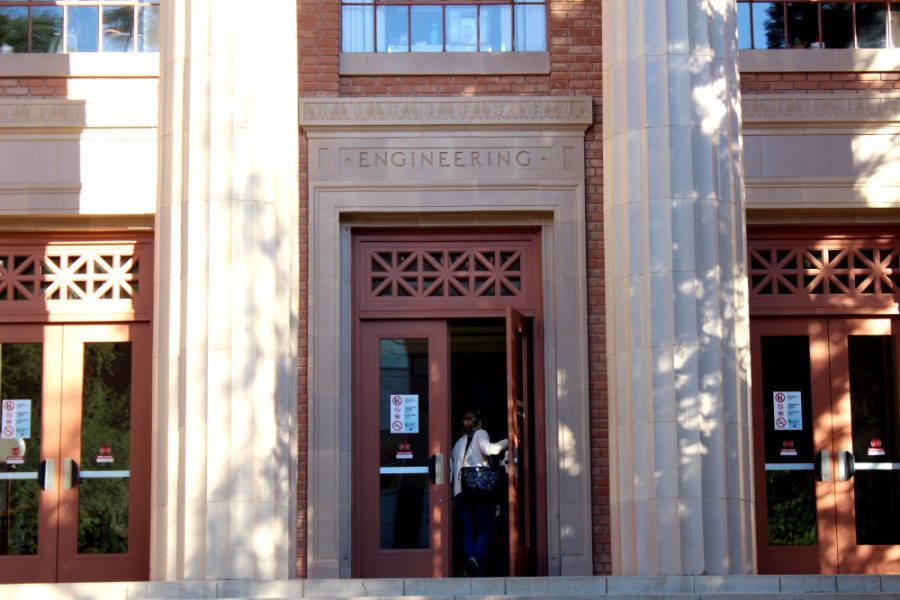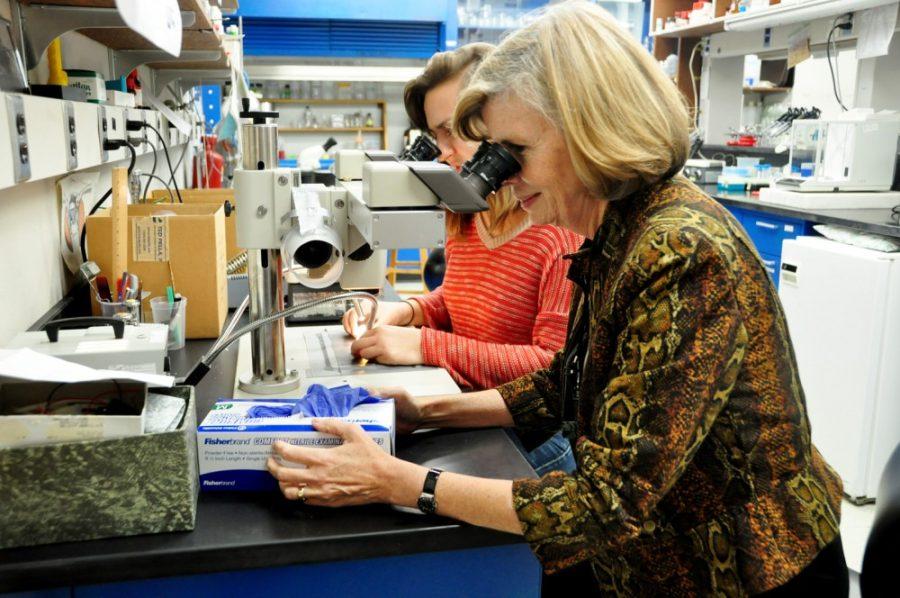Imagine being able to explore the vast array of interests and opportunities that college has to offer to your heart’s desire, but without the added stress and uncertainty of narrowing down those same interests toward a single subject. Does this sound too good to be true?
For the Wildcats in the first cohort of the Accelerated Pathway to Medical Education program, this will be their reality.
This fall, six motivated and determined freshmen will comprise the inaugural class of the APME program at the University of Arizona, a special curriculum guaranteeing early admission to medical school at the UA for a select few high-achieving students, without requiring a bachelor’s degree or MCAT exam.
The admissions process for medical school, coupled with the rigorous MCAT exam, can be substantial roadblocks for students on the path to a future career in medicine. With the assurance provided by the APME program, these potential hurdles are nonexistent, contributing to a much more stress-free college experience for these lucky scholars.
“I think what really made it such an attractive program was the fact that you don’t have to take the MCAT, and you don’t have to do any more applications,” said APME student Yi-Jen Yang. “GPA is the only thing that we really have to focus on, but because of that, it really allows us to explore in other directions that we want to do.”
The APME program offers a three-year undergraduate experience, where students can feel free to explore various interests and obtain an education in whatever field of study they desire before going into their medical courses. Additionally, all APME students are admitted to the Honors College upon confirmation of their acceptance into the program.
“The mission [of the APME program] is to select students who are not only going to be outstanding physicians, but outstanding physician leaders, and who really know that this is the career path for them,” said Zoe Cohen, an associate professor in the Department of Physiology and the director of the APME program.
The requirements for being admitted into the program include a meticulous application and interview process, where prospective students are asked a variety of questions varying from scientific inquiries to more ethical questions that determine how they would react given a particular situation.
“We’re looking at these high school students exactly the same way that we look at potential medical students, so we’re looking for what we call specific attributes,” Cohen said. “We want them to be ethical, we want them to obviously have a strong interest in medicine and we want them to compliment the College of Medicine’s mission statement, which is really working with underserved populations.”
Kyra Singh, a student in the APME program, found that her alignment with the ideals and mission of the College of Medicine helped solidify her decision to apply for the program. “I think that one of the biggest things that drew me to this program specifically was that the university’s College of Medicine does a really good job of working with under-resourced and underprivileged areas, and that’s something that I’ve really found myself to be passionate about. So through this program, I hope that I can be able to directly impact these communities and not only just be a doctor, but also be a scientific leader within the community.”
The students who have been selected to the first cohort of the APME program are extremely motivated, intelligent and earnest about making a positive impact on the world through the field of health and medicine. They are eager to begin their careers in medicine, as well as explore the various academic avenues offered by the university.
“I’ve always wanted to explore different fields, outside of medicine,” said APME student Nikhil Mathur. “I knew helping people was my goal, that’s what I’ve been doing since I was young and I’ve always dreamed about being a physician, but there are other fields I think I’ve always wanted to explore that I believe would benefit me and just my personal life.”
APME student Makenna Ley credited the program’s flexibility to cater to her various academic interests, including philosophy, Spanish and Korean language studies. “I’m doing a Spanish major, and I’m actually taking Korean classes my first semester, and that’s something I might not have been able to do if I didn’t have this program.”
In addition to the enhanced avenue to the university’s medical program and the freedom of undergraduate studies, Cohen stated that there are plans for a mentorship program to help the APME students make the transition from undergraduate studies to medical school.
“We’re starting a mentorship program with students who are in the College of Medicine currently, but did their undergraduate at the [UA]. So we will pair them up with a student who can be a support system while they’re on the undergraduate campus and talk about the best place to get lunch, where you should study, who you should take for this class or that class … and to have that support system already built in. I think is going to be a huge bonus, and I think it’s actually going to benefit not only the APME students, but also our medical school mentors,” Cohen said.
The students in the first cohort of the APME program all exemplify the values and specific attributes that Cohen stated they were looking for in the program, but that does not mean that there is a particular archetypal student for whom the program is searching for.
“There is no ideal candidate, the six of us are all different. We’re not all the same, we’re not all robots, we all have humongous personalities, believe it or not,” said APME student Ivan Carrillo. “They’re not looking for one person who wants to be a medical genie, they’re looking for actual human beings who want to help the world through some sort of health profession.”
These inspiring scholars have their sights set on a career in medicine and cannot wait to make an impact on the world for the better. This fall, they’ll finally begin their journey to become physicians and make the world a better, healthier place.
“I think when they matriculate into the College of Medicine, they’re going to be superstars,” Cohen said. “I really feel that these are going to be the leaders in medicine in the future, so I’m thrilled to be able to have a front row seat.”
Follow Vic Verbalaitis on Twitter















